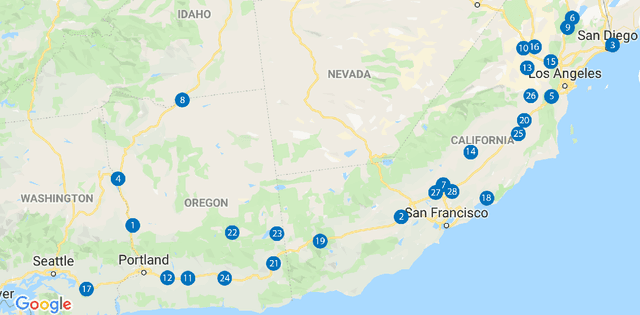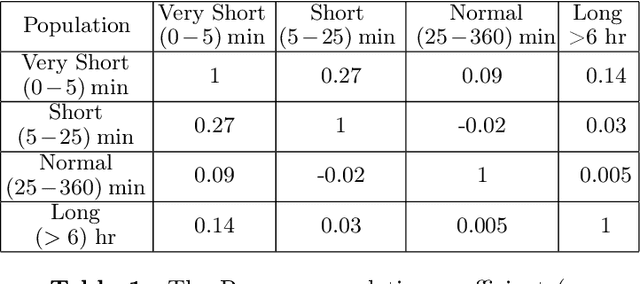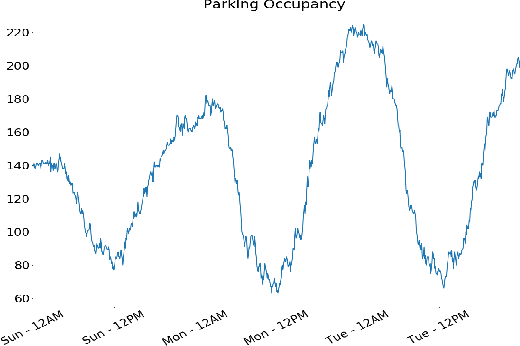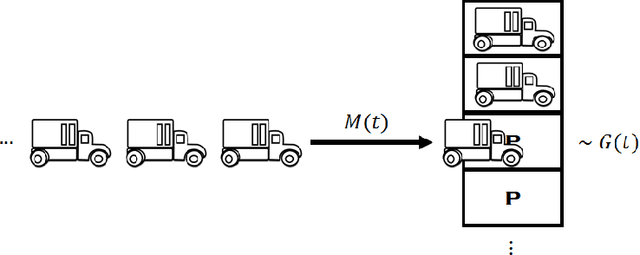Hamidreza Tavafoghi
A Queuing Approach to Parking: Modeling, Verification, and Prediction
Aug 29, 2019



Abstract:We present a queuing model of parking dynamics and a model-based prediction method to provide real-time probabilistic forecasts of future parking occupancy. The queuing model has a non-homogeneous arrival rate and time-varying service time distribution. All statistical assumptions of the model are verified using data from 29 truck parking locations, each with between 55 and 299 parking spots. For each location and each spot the data specifies the arrival and departure times of a truck, for 16 months of operation. The modeling framework presented in this paper provides empirical support for queuing models adopted in many theoretical studies and policy designs. We discuss how our framework can be used to study parking problems in different environments. Based on the queuing model, we propose two prediction methods, a microscopic method and a macroscopic method, that provide a real-time probabilistic forecast of parking occupancy for an arbitrary forecast horizon. These model-based methods convert a probabilistic forecast problem into a parameter estimation problem that can be tackled using classical estimation methods such as regressions or pure machine learning algorithms. We characterize a lower bound for an arbitrary real-time prediction algorithm. We evaluate the performance of these methods using the truck data comparing the outcomes of their implementations with other model-based and model-free methods proposed in the literature.
 Add to Chrome
Add to Chrome Add to Firefox
Add to Firefox Add to Edge
Add to Edge